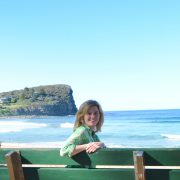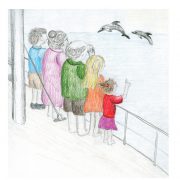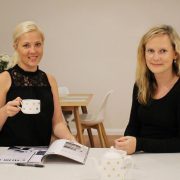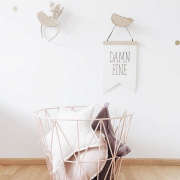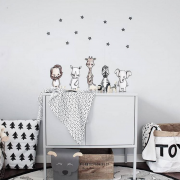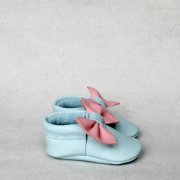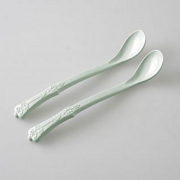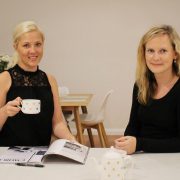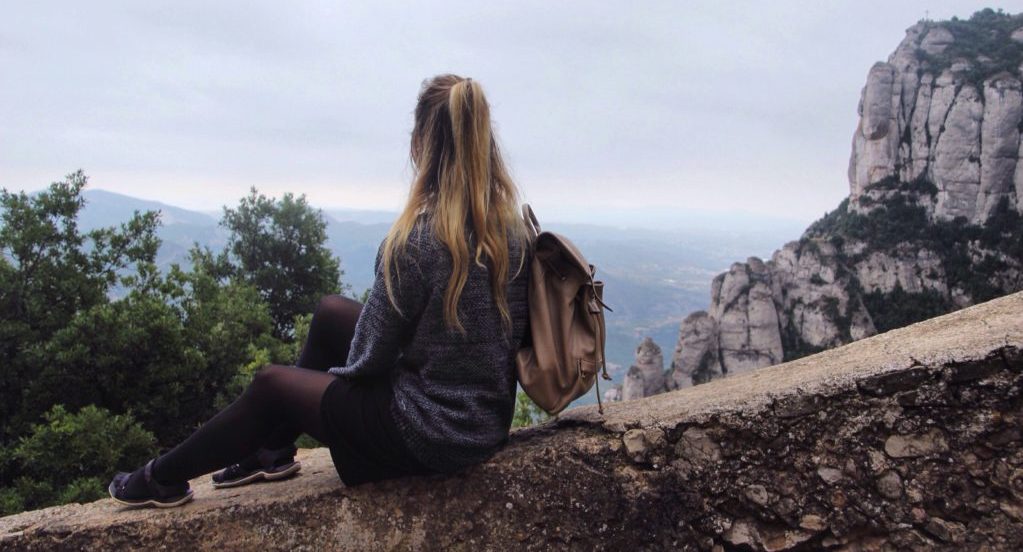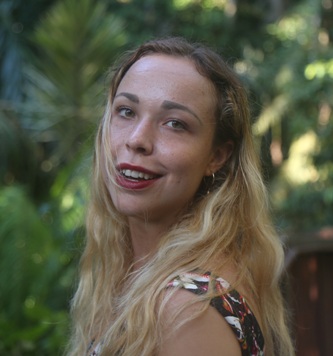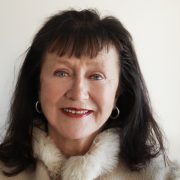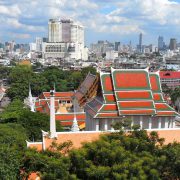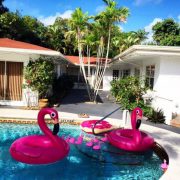Florida is a super popular location for many Scandinavians for an obvious reason – the weather! Let’s find out why our Swedish friend Fay (Fanny) is living in Fort Lauderdale.
Introduction
My name is Fay Lundin. I am 22 years old and I live in Fort Lauderdale, Florida. I am originally from Sweden, but I moved to the US about three years ago. I started my journey in Miami to study English, but a year later my family decided it was time to expand our Swedish company and try something new, and that’s how I ended up managing 12 vacation rental units in the heart of Fort Lauderdale. My family has since 17 years back worked with hotels and real estate in Sweden, and me and my sister actually grew up at one of our hotels. For that reason, this has always been a business that’s close to my heart and that I feel very comfortable working with.
I love Fort Lauderdale for many reasons. I love the fact that it’s a big city, but it feels very small after a while. It has more personality than, for an example, Miami. The worst part about Fort Lauderdale would be the distance to everything. I spend a lot of time in my car…
My schedule is never the same. So explaining what a “normal day” looks like is extremely hard for me. Some days are full of glamorous events, such as meetings about upcoming things, different fun interactions and beautiful locations. And others are less glamorous; cleaning, fixing broken toilets, garden work, etc. But when you mix all of those different things, you find a good balance.
ABOUT FLORIDA LIFESTYLE
I find the lifestyle here in Florida a lot more relaxing than in Sweden.
People are more spontaneous here. But of course that can be both good and bad.
For example, working with Americans can be more difficult than Swedes. Time is not valued as much as in Sweden, in my opinion. If you schedule something for a certain time, you, as a Swedish person, show up at that time. But that’s not always the case here in the US. I feel like it’s a lot more “Mañana, Mañana” over here.
When I get guests from Europe, I do my best to make them feel at home.
Fort Lauderdale is a wonderful place to visit. We have so much to offer.
I usually try to find a balance between the luxury side and the soft “beach hang” that Fort Lauderdale has. That way you never get bored.
ABOUT THE DIFFERENCES BETWEEN SWEDEN AND USA
The thing that I miss the most about Sweden and Europe in general is the food.
Everything has a stronger taste back home. The vegetables are larger here, yes, but they taste 100 times better in Sweden. You don’t have to think as much about what you are putting down in your grocery cart because we have a very healthy lifestyle in Sweden. I think that’s what I miss the most; being able to buy healthy food that really is good for you.
What I miss the least is the lack of social events. Sweden is not as spontaneous as America. If you have plans, they have been planed weeks in advance. That’s what I love about Florida. People can call you up the day before a big event and ask if you want to join.
When I think back to before I moved to the US, I remember thinking that this place would be a goldmine for opportunities.
And to be honest, it really is. Of course it all depends on your personality, but if you have an open mind, and take care of the contacts you make, like a garden; you nourish them, pay attention and get rid of the weeds, then you will soon see that the garden is growing and flourishing. And no, you won’t be able to act on every single offer that is presented to you. Making sure you take care of your “social garden” is the best way to secure a future with great contacts.
ABOUT THE FUTURE
Being a few years into this adventure, I can honestly say that I wouldn’t do a single thing differently. Every bad decision and good outcome has brought me here and it has sculptured my mind. It’s not always easy. And especially not when you are in another country, but making mistakes is just a way of learning.
To people who want to visit Fort Lauderdale, I would say “do it.” There are a lot of great spots here.
I would highly recommend:
- Loui Bossis
- Rhythm and Vine
- Boatyard
- Yolo
- Rocos Tacos and
- Casablanca
What I hope for in my future life is security.
I want to still have my family around me and still be as close as we are today, but I would like to expand the company. More collaborations and more opportunities in order to grow. I do not see myself moving back to Sweden – at least not fulltime. I would love to spend a few months there during the summer, and I will always stay connected to my home country. I believe roots are the foundation to build on.
ABOUT YOUR BUSINESS
The reason we started our business in Fort Lauderdale, FL is because of our love for this city. My parents have been in the hotel-and real estate business in Sweden for many years, and when I finally joined the company on fulltime, we figured it was the right time to expand our company globally. My parents have always worked towards the goal of one day ending up here in the USA.
I think success is different for everybody. Some might say it is being recognized for something you’ve done, others may say it’s the number on your bank account, but I’m not so sure. I do agree with the above, that’s what motivates me, but I believe that when I can be happy for other people’s success without feeling bad about myself, that’s when I know I’m on my way to success. At least that’s how I feel for now. I feel very comfortable in my life and myself. And what I’ve noticed is that it’s a lot easier to be happy for others when you are happy with yourself.
ABOUT YOUR SKILL SET AND YOUR CHALLENGES
The best skill that I posses is the fact that I make people feel relaxed and, again, comfortable around me. I think that’s very important if you want to build long lasting connections. No one wants to hang around a person that scares them, or makes them feel bad about themselves. I actually learned that from a very successful friend that I have here in the US. He always brings people up. He makes everyone around him feel so important and special.
My top challenge is staying focused. Ever since I was very young I have never been able to stay focused on one task for very long. I get very involved in the beginning, but then I lose interest and I want to move on the next project. I think that’s my biggest weakness. But as I am trying to take on more responsibility, I have to work on focusing on the things that I get involved in.
ANY ROLE MODELS
My most important role models are my parents. They have both such amazing qualities and they balance each other so well. My father is the bloodhound. He is always finding new projects or businesses that he believes in. He´s an amazing businessman because he sees what other don´t, and I hope to learn a lot more from him. And then my mom. She´s a real superwoman. She steps in after my dad finds a project, and somehow she just makes it all work. She is juggling several companies and a crazy family all at the same time. To me, she´s the ideal woman. I hope to be like her.
The most important lesson that I have learned in this industry, is that even though the customer isn’t always right, you have to act as if their problems are the most important issues of the day. Their happiness equals success for you.
ADVICE TO OTHERS
My advice to women who want to do the same thing as I do is:
“If you haven’t got it, fake it. If you look confident enough, you can pull anything off.”
Bayview Crowns is still a relatively new company, so I hope that within the next few years, we will have a stable foundation and a good circle of costumers.
I would like Bayview Crowns to be a vacation rental that brings customers back every year for their annual holiday, sort of like a second home.
How to connect with me.
Website : www.BayviewCrowns.com
Instagram : FayLundin
Email : Fay@Lundinrealestate.com
Connect with our company:
Website: www.BayviewCrowns.com
Email: BayviewVillasFL@gmail.com
Instagram: BayviewCrowns

